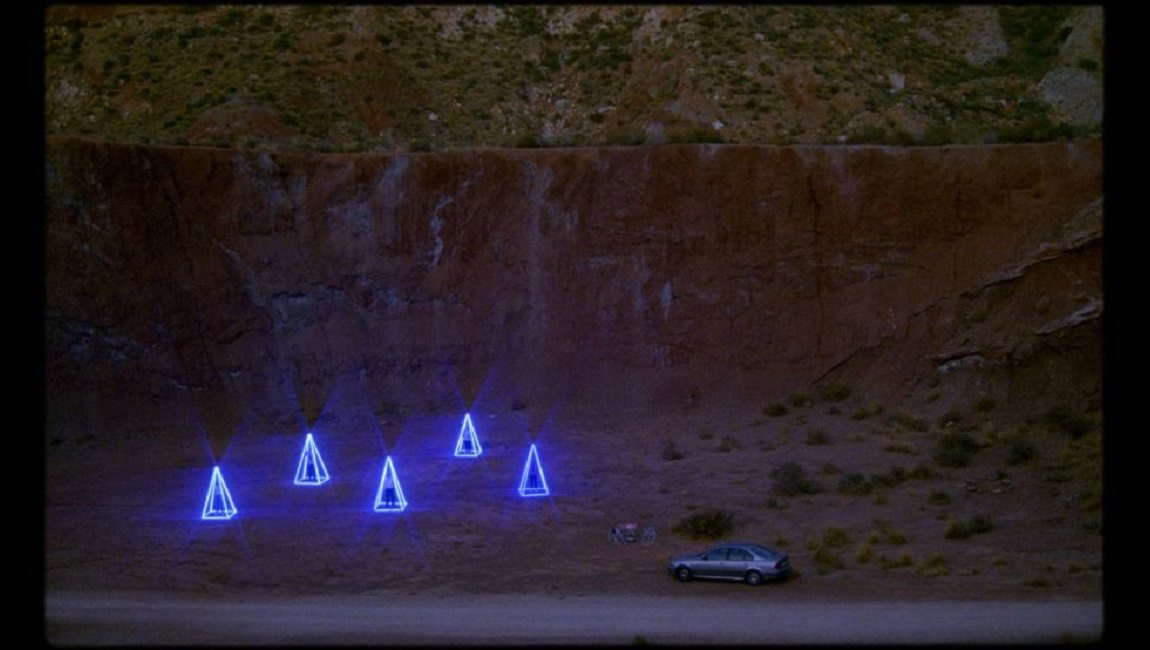In 2020, French director Mathilde Girard released Episodes — Spring 2018, a half-hour film that played like a fictionalized diary and was notable for its energetic depiction of a group of young adults meeting up in various configurations and practically vibrating with possibility and confusion. It’s not just that the short is fast-paced; Girard succeeds at communicating the frantic uncertainty of being in Paris in your early twenties, and for this reason, Episodes is both inspiring and a bit exhausting. Girard’s feature debut, The Night Drags On, could hardly be more different. Shot during the pandemic, when Paris was under curfew, it’s a formalist disquisition on loneliness and isolation.
At times, Night is a bit too much to bear, as Girard cycles through three different strands of material which, apart from time and place, seem to have little to do with each other. One line of continuity involves a nighttime cab ride in which a woman (Anne-Lise Broyer) describes a mysterious ailment that kept her hospitalized for weeks, explaining that her work as an artist has suffered because of neurological damage. She relates her experiences to the driver (Michaël Bejaoui Evans), who politely questions her in order to keep the conversation going and the meter running. The other primary motif involves an androgynous young woman (Anna Cohen-Yanay) living alone, listening to answering machine messages, making breakfast, showering, and seemingly going through the motions of a lackluster daily life.
Girard alternates these two arcs — the cab and the apartment — with a series of still shots of desolate street life in Paris’ 19th and 20th arrondissements, with the same exact shot setups presented, in sequence, several times over the course of the film. This, of course, gives The Night Drags On a concrete temporal element, seeing a corner market close down for the night, or a busy intersection gradually empty out. To be sure, the film is haunted by the creative spirit of Chantal Akerman, as Girard moves us methodically through these data strands: streets, apartment, cab, and then repeat, in a sort of gene-splice of News from Home and Toute une Nuit. But Akerman’s minimalist rigor always builds to a higher form of truth, in which details accumulate and subject positions evolve over the course of the film. The Night Drags On ends up somewhere very close to where it began, its intentions never really becoming clear.
Published as part of InRO Weekly — Volume 1, Issue 28.







